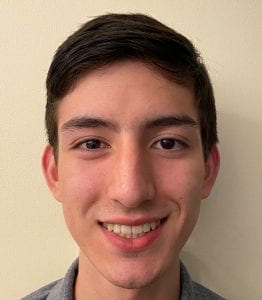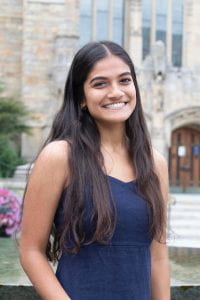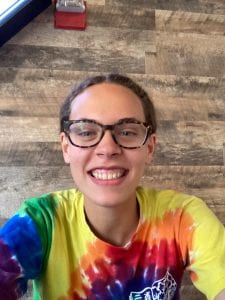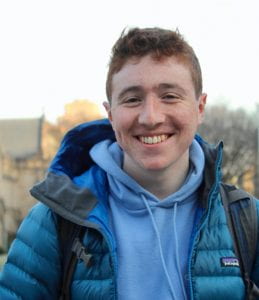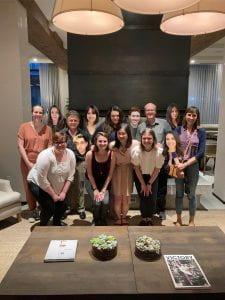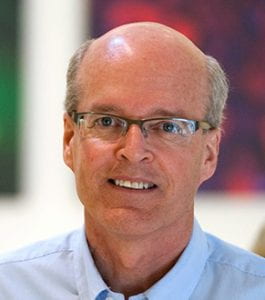 Richard Aslin, Ph.D.
Richard Aslin, Ph.D.
Senior Research Scientist, Child Study Center, Yale School of Medicine
Senior Research Scientist, Dept. of Psychology, Yale University
Prior to joining the Yale Child Study Center, Dr. Aslin was a Senior Research Scientist at Haskins Laboratories from 2017-2023, and prior to Haskins, Dr. Aslin was on the faculty at the University of Rochester for 33 years, where he established the Rochester Baby Lab. Dr. Aslin’s work focuses on perceptual and motor systems, language acquisition, and statistical learning. His work on statistical learning showed that infants can understand structure from rapid streams of speech or images by simple exposure. More recent work has shown that infants direct their attention to auditory and visual cues that have an intermediate level of complexity. Dr. Aslin primarily focuses on studies utilizing fMRI, EEG, and fNIRS. Dr. Aslin has been the recipient of several major awards, including the APA Distinguished Scientific Contributions Award (2014) and the APS Mentor Award for Lifetime Achievement (2015), and several honors, including election to the American Academy of Arts and Sciences (2006) and the National Academy of Sciences (2013).
In his spare time, Dr. Aslin enjoys cycling and completes at least one multi-day ride each year in the Rocky mountains or the French alps.
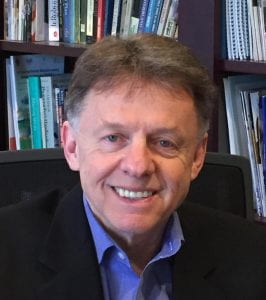 David J. Lewkowicz, Ph.D.
David J. Lewkowicz, Ph.D.
Senior Research Scientist, Child Study Center, Yale School of Medicine
Professor Adjunct, Department of Psychology, Yale University
Prior to joining the Yale Child Study Center, Dr. Lewkowicz was a Senior Scientist at Haskins Laboratories (2019-2023), and prior to Haskins, Dr. Lewkowicz was a Professor in the Department of Communication Sciences & Disorders at Northeastern University in Boston. At Northeastern, he directed the Communication Development Laboratory where he conducted studies on the development of speech and language in infants and young children. Through his studies, Dr. Lewkowicz and his colleagues discovered that babies begin lipreading just as they begin babbling and this discovery has paved the way for the current studies in the lab investigating how early lipreading contributes to the acquisition of speech and language in infancy and beyond. Dr. Lewkowicz has been recognized for his contributions to developmental science and psychology with election as a Fellow of the American Association for the Advancement of Science, the Association for Psychological Science, and the American Psychological Association and has served as President of the International Congress on Infant Studies.
Outside the lab, Dr. Lewkowicz enjoys cycling, traveling, hiking, birdwatching, and reading.
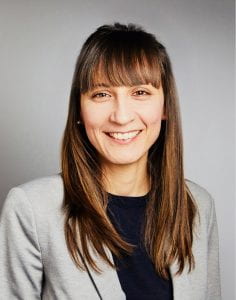 Sara Sanchez-Alonso, Ph.D.
Sara Sanchez-Alonso, Ph.D.
Associate Research Scientist, Yale Child Study Center
My overarching research focus is on human language. Language is a core human capacity that is acquired effortlessly after birth and drives long-lasting changes in brain structure and function. Yet, despite its crucial role in human experience, there is a lack of understanding of language neurobiology. Specifically, I investigate the intrinsic functional architecture supporting human language, how it develops, and how the brain supports unique computations allowing the formation of complex language processes. Furthermore, I am interested in understanding how these brain patterns differ in people who speak more than one language and the changes associated with multilingualism across developmental stages. Finally, my work translates basic insights from neurolinguistics to define neuromarkers associated with abnormal language development and processing.
Email me: sara.sanchez.alonso@yale.edu
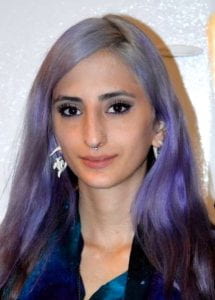 Erin Isbilen, Ph.D.
Erin Isbilen, Ph.D.
Postdoctoral Research Fellow
 Natasa Ganea, Ph.D.
Natasa Ganea, Ph.D.
Postdoctoral Research Fellow
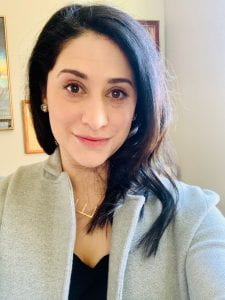 Elizabeth Simmons, Ph.D.
Elizabeth Simmons, Ph.D.
Assistant Professor, Sacred Heart University
My research, broadly defined, evaluates how very young children learn and comprehend spoken words. I utilize psycholinguistic methods such as the visual world paradigm and eye-tracking to better understand how infants and toddlers process the acoustic-phonetic detail in the speech signal. My work translates basic science procedures to clinical populations, including toddlers with language delay, in order to develop more sensitive metrics for diagnosing and treating childhood language impairments.
Email me: simmonse3@sacredheart.edu
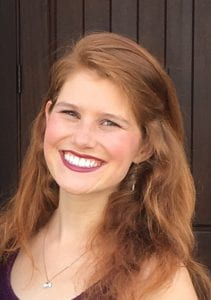 Tristan Yates
Tristan Yates
Ph.D. Student, Psychology, Yale University
Tristan is interested in how the brain networks that support learning and memory change across development, influencing the types of memories we retain, the inferences we draw, and our abstract knowledge of the world. Tristan has always been fascinated with how both biology and culture contribute to human behavior, thanks in part to her fraternal twin sister.
 Aditya Chander
Aditya Chander
Ph.D. Student, Music Theory, Yale University
Prior to joining Yale, Aditya obtained a Bachelor of Arts in Music from the University of Cambridge (2017), graduating with a First Class degree with Distinction. His final Analysis Portfolio explored two-dimensional sonata form in Respighi’s Quartetto Dorico, and the value of neo-Riemannian theory in explaining transition passages in Chausson’s Poème. He also holds a Masters degree from Stanford University in Music, Science, and Technology (2019). At Stanford, he taught introductory computer science, and worked in the Neuromusic Lab at the Center for Computer Research in Music and Acoustics, where his research examined the neural correlates of piano duet improvisation using EEG, and violinists’ expressive gesture profiles using motion capture technology. Aditya’s primary research interests include the embodiment of musical structure, and the perception of familiar melodic schemata in galant music. When he is not busy gelling subjects’ scalps for EEG experiments or taping reflective markers to performers for motion capture experiments, Aditya is an avid violinist. He was a winner of the Cambridge University Symphony Orchestra concerto competition in 2015, and the Stanford Symphony Orchestra Concerto Competition in 2018.
Alumni of the Lab:
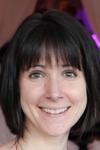 Alexis Black, Ph.D.
Alexis Black, Ph.D.
University of British Columbia
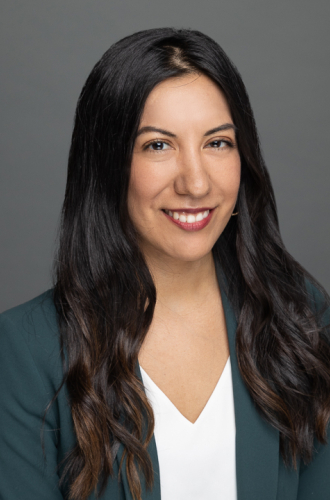 Maria Arredondo, Ph.D.
Maria Arredondo, Ph.D.
Assistant Professor, University of Texas- Austin
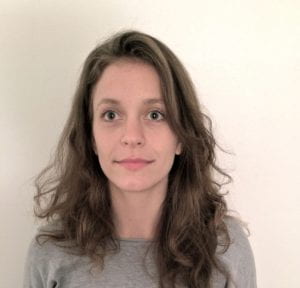 Claire Kabdebon, Ph.D.
Claire Kabdebon, Ph.D.
Marie Curie Postdoctoral Fellow
My research focuses on the developmental origins of our uniquely human ability to decipher and use natural language. What sort of learning mechanisms and brain architecture allow infants to discover, with such ease and speed the meaning of words or the underlying syntax of their native language? To answer this question, I use two non-invasive brain imaging techniques: electroencephalography (EEG) and functional near infrared spectroscopy (fNIRS) with young infants. These techniques provide a direct window onto the dynamics and functional organization of the developing mind.
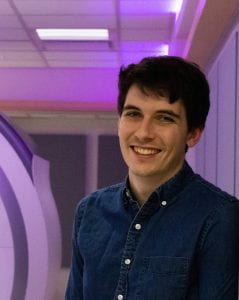 Cameron Ellis, Ph.D.
Cameron Ellis, Ph.D.
Assistant Professor, Stanford University
I study how basic building blocks of cognition emerge and mature in the developing brain, and seek to understand how we are adapted to the challenges we face during development. My previous research used fMRI with awake, behaving infants to ask 1) how the visual system is organized early in life, long before visual abilities reach maturity, 2) how attention enables infants to sift through a world full of complexity, and 3) how infants can learn so much yet remember so little of their early life experiences. My current research asks how cognitive constraints during development scaffold language comprehension and production.
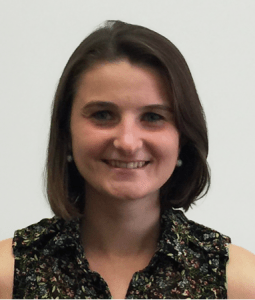 Lena Skalaban, Ph.D.
Lena Skalaban, Ph.D.
Postdoctoral Fellow, Temple University
Infants and children are prodigious learners, but as adults we forget much of our early autobiographical experiences prior to age 2 or 3: a phenomenon known as infantile amnesia. My research focuses on understanding this and other examples of episodic forgetting throughout development, and whether there are differences in the content of information we remember in infancy, adolescence and adulthood. I utilize neuroimaging techniques such as fMRI and EEG to understand how memories might be reactivated and replayed in the brain even in the absence of an explicit task or awareness and how this might be linked to consolidation or forgetting of memories. I also utilize eyetracking and behavioral paradigms to explore what type of contextual information infants are interested in exploring/looking at and whether that predicts subsequent memory.
Current Research Staff:
 Rachel Nelson (Lewkowicz Lab)
Rachel Nelson (Lewkowicz Lab)

Julia McClellan (Lewkowicz Lab)
 Abigail Laver (Aslin Lab)
Abigail Laver (Aslin Lab)
 Isabel Nichoson (Aslin Lab)
Isabel Nichoson (Aslin Lab)
Former Research Staff:
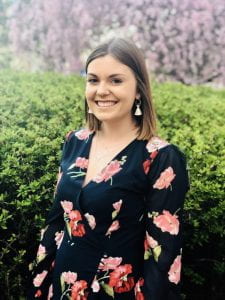 Rebecca Canale
Rebecca Canale
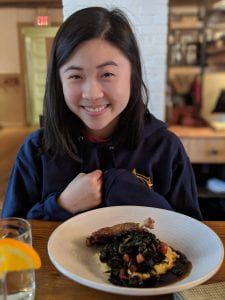 Alice Wang
Alice Wang
Current Research Assistants:
 Natalie Tewksbary (Lewkowicz Lab)
Natalie Tewksbary (Lewkowicz Lab)
Sacred Heart University
Santiago Calderon (Lewkowicz Lab)
Yale University
Vanya Shivashankar (Lewkowicz Lab)
Yale University
Gabriella Thompson (Aslin Lab)
Former Research Assistants:
 Megan Niu (Lewkowicz Lab)
Megan Niu (Lewkowicz Lab)
Yale University
 Ella Ginsburg
Ella Ginsburg
Boston College
Yale University

Stephanie Owusu
Yale University
Our Collaborators:
Katarzyna Chawarska, Yale Child Study Center, katarzyna.chawarska@yale.edu
Ferran Pons, University of Barcelona, ferran.pons@ub.edu
Laura Bosch, University of Barcelona, laurabosch@ub.edu
Joan Birules, Université Grenoble Alpes, joanbirules@gmail.com
Laurie Bayet, American University, lauriebayet@gmail.com
Vik Bejjanki, Hamilton College, bejjanki@hamilton.edu
Lauren Emberson, University of British Columbia, lauren.emberson@gmail.com
Jozsef Fiser, Central European University (Budapest), fiserj@ceu.edu
Bob McMurray, University of Iowa, bob-mcmurray@uiowa.edu
Charles Nelson, Boston Children’s Hospital, Harvard, charles.nelson@childrens.harvard.edu
Elissa Newport, Georgetown University, eln10@georgetown.edu
Monica Rosenberg, University of Chicago, mdrosenberg@uchicago.edu
Mark Schmuckler, University of Toronto, mark.schmuckler@utoronto.ca
Shinmin Wang, National Taiwan Normal University, s.wang.psy@gmail.com
Ben Zinszer. Swarthmore College, bzinszer@gmail.com
Check out some of our team pictures!
LLAMB Lab Holiday Dinner, Dec. 9, 2021:

LLLAMB Lab RA Send-Off Party, July, 2021:
